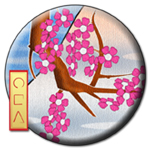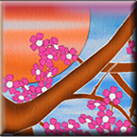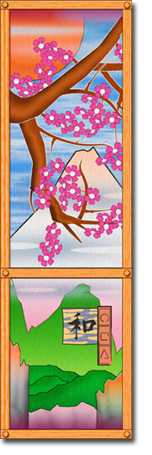On The Way: The Daily Zen Journal
Always Mindful
Yuanwu (1063-1135)

The ancients were always mindful of this matter. Whether deep in the mountain valleys or in the bustling villages and towns, they never turned their back on it for an instant. Whatever scenes or circumstances they encountered, amidst sound and form, in the course of movement and action, they invariably turned around and focused back on their own true selves. The practice of all the adepts since time immemorial who completely penetrated through was none other than this.
Thus, with their fundamental basis firm and strong, they were not blown around following the wind of objects. They were serene and at peace and did not fall into the scope of feelings of holy and ordinary. They came directly to great cessation and great rest: they “found the seat and put on the robe.”
Now you are returning to your home village able to see as the ancients saw. If you can make it continuous and unbroken, how will it be any different than when you were in the monastery being guided by the abbot and doing your meditation work? If you turn your back on it at all, and there is some break in the continuity, then you will lose contact.
We are about to part, so remember these words. Another time in the future, don’t look back and blame me for not admonishing you.
Be Undefinable
For students of mystic wisdom, seeing the real nature of things and awakening to the true pattern and treading in the steps of the buddhas is everyday food and drink.

You should realize that on the crown of the heads of the buddhas and enlightened adepts there is a wondrous way of “changing the bones” and transforming your existence. Only then can you get beyond conventional categories and sectarian limits and act like a transcendent person, so that even great Zen masters like Linji and Deshan would have no way to apply their blows and shouts to you.
At all times just remain free and uninvolved. Be undefinable, and do not reveal any conspicuous signs of your special attainment. It should be as if you are there among myriad precious goods locked up securely and deeply hidden in a treasure house. With your face smeared with mud and ashes, join in the work of the common laborers, neither speaking out nor thinking.
Live your whole life so that no one can figure you out, while your spirit and mind are at peace. Isn’t this what it is to be imbued with the Way without any contrived or forced actions, a genuinely unconcerned person?

Among the enlightened adepts, being able to speak the Truth has nothing to do with the tongue, and being able to talk about the Dharma is not a matter of words.
Clearly, we know that the words spoken by the ancients were not meant to be passively depended on. Anything the ancients said was intended only so that people would directly experience the fundamental reality. Thus, the teachings of the sutras are like a finger pointing to the moon, and the sayings of the Zen masters are like a piece of tile used to knock on the door.

If you know this, then rest. If your practice is continuous and meticulous and your application broad and all-pervading, and you do not deviate from this over the years, then you will mature in your ability to handle the teachings, to gather up and to release, and you will be able to see through petty things and cut them off without leaving a trace.
Then when you come to the juncture of death and birth, where all the lines intersect, you won’t get mixed up. You will be clear and immovable, and you will be set free as you leave this life behind. This is deathbed Zen, for the last day of your life.
Yuanwu (1063-1135)
Excerpted from excerpted from Zen Letters – Teachings of Yuanwu tran by J.C. and Thomas Cleary 1994





In so many of these pithy lines the heart of practice is conveyed. There is a simplicity and directness that serves as a guide to us all, even centuries later. Without one reference to the technique of meditation practice, Yuanwu manages to hand us the keys of practice and show it doesn’t matter where you are, turning the light back inside is always available to us.
Who doesn’t resonate with the desire to not be “blown around following the wind of objects?” So much of our awareness practice is turning the light back inside. Without too much instruction on how to do this or what to feel, it is all provided as if looking at an impressionist painting. The lines are blurry and indistinct, but the heart of the scene is fully conveyed.
“Now you are returning to your home village able to see as the ancients saw.”
And being “undefinable” leaves us free from the categories of attainment that the ego so desperately craves. How to balance a life of compassion and action with the experience of detachment from the dramas is a matter we confront each day.
Clearly this is moment by moment awareness practice. For those of us on the way, returning to our breathing or posture becomes a boat to help us cross to the other shore.
May we go deeply into action from stillness,
Elana, Scribe for Daily Zen